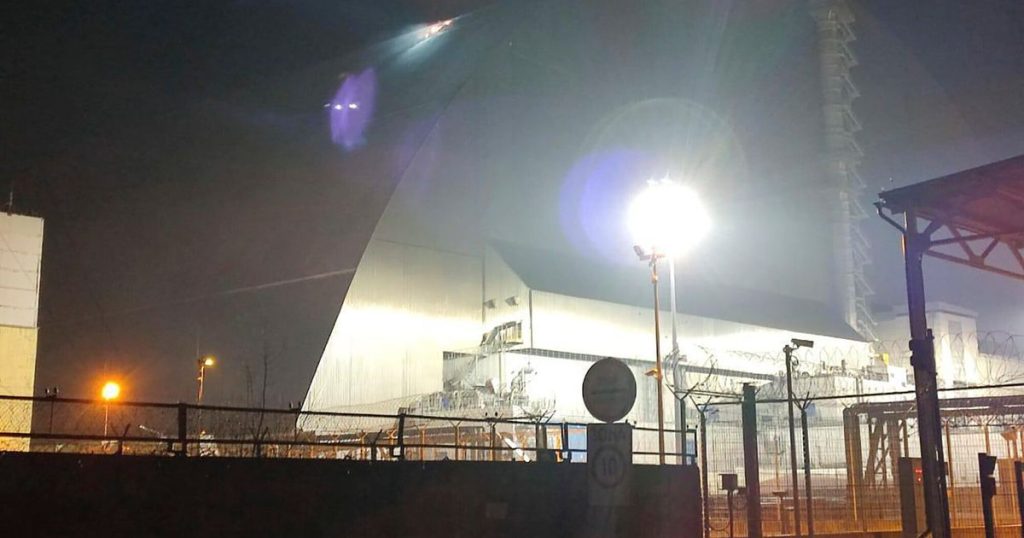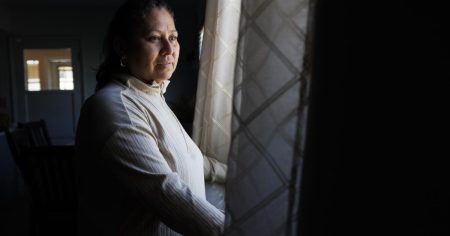A drone attack struck the Chernobyl nuclear power plant in Ukraine early Friday, targeting the protective outer shell of the infamous site. The drone, which was armed with a warhead, caused damage to the structure and sparked a brief fire before being extinguished. Ukrainian officials quickly blamed Russia for the attack, while the Kremlin denied any involvement. The incident has raised significant concerns about nuclear safety, as Chernobyl is the site of the world’s worst nuclear disaster in 1986, which claimed at least 30 lives and released radioactive fallout across much of the Northern Hemisphere. Despite the attack, the U.N. International Atomic Energy Agency (IAEA) reported that radiation levels at the plant remain stable, as the strike did not breach the inner containment shell. The agency noted, however, that the attack underscores the persistent risks of military activity near nuclear facilities.
The attack occurred amid escalating tensions in Ukraine, where fighting has persisted for three years. The conflict has repeatedly raised fears of a potential nuclear catastrophe, particularly given the vivid memories of the 1986 Chernobyl disaster that still linger in the region. Chernobyl, located in the Kyiv region, has been decommissioned since the tragic accident, but its ruins remain a critical site for nuclear safety. The outer shell struck by the drone was built in 2016 as part of ongoing efforts to contain radiation from the damaged reactor. The structure, weighing around 40,000 tons, is designed to prevent radioactive leaks and is tall enough to house Notre-Dame Cathedral. A photograph released by Ukraine’s Emergency Service showed a significant hole punched into the roof of the outer shell, highlighting the severity of the damage.
Kyiv and Moscow have traded blame for the attack, with neither side providing conclusive evidence to support their claims. Ukrainian President Volodymyr Zelenskyy accused Russia of using a drone with a high-explosive warhead, asserting that the strike was a reckless act that further demonstrated Russia’s disregard for nuclear safety. He emphasized that such actions constitute a “terrorist threat to the entire world.” Meanwhile, Kremlin spokesperson Dmitry Peskov denied Russia’s involvement, calling the allegations “false” and dismissing the attack as a “false flag” operation by Ukraine to derail potential peace negotiations. Peskov’s comments followed an unexpected shift in U.S. policy, as former President Donald Trump announced his willingness to meet with Russian President Vladimir Putin to discuss ending the war. Trump’s move appeared to sideline Zelenskyy and European governments, raising concerns about the direction of international efforts to resolve the conflict.
The IAEA, which has personnel stationed at Chernobyl, reported that its team heard an explosion and was informed of the drone strike. The agency has not attributed blame for the attack but has warned of the growing nuclear safety risks in the region. IAEA Director-General Rafael Grossi expressed concern over increased military activity near Chernobyl and the Zaporizhzhia nuclear power plant, Europe’s largest, which has also been targeted by drones in the past. Grossi stated that the IAEA remains “on high alert” and is closely monitoring the situation. Despite the damage, the agency confirmed that radiation levels at Chernobyl remain normal and that there were no casualties resulting from the attack.
The strike on Chernobyl comes as Ukraine faces increasing pressure on the battlefield. Russia’s larger military force has pushed Ukrainian troops back along parts of the 1,000-kilometer front line, and Kyiv is urgently seeking additional Western support to halt the advance. Zelenskyy has repeatedly accused Russia of disregarding the risks of nuclear conflict, pointing to its occupation of nuclear power plants and its conduct of hostilities near such facilities. He has called for Russia to be held accountable for its actions, which he describes as “terrorist” threats to global security. The attack on Chernobyl serves as a stark reminder of the dangers of war in areas with critical nuclear infrastructure, where even a single mistake could have catastrophic consequences.
As the conflict in Ukraine continues to escalate, the international community remains deeply concerned about the potential for a nuclear accident. The attack on Chernobyl has highlighted the fragility of nuclear safety in the region and the urgent need for a diplomatic resolution to the war. Ukraine plans to provide detailed information about the strike to U.S. officials during the Munich Security Conference, further escalating calls for international intervention. Meanwhile, the IAEA has reiterated its commitment to monitoring the situation and ensuring the safety of nuclear facilities in Ukraine. The attack serves as a grim reminder of the risks posed by prolonged conflict in a region with a history of nuclear disasters, and it underscores the need for all parties involved to prioritize nuclear safety and seek a path toward peace.









